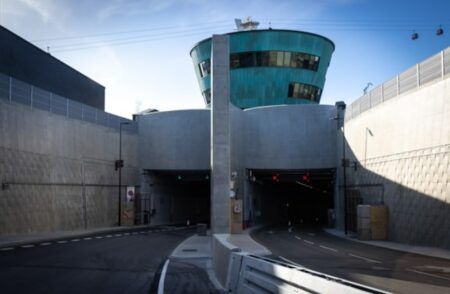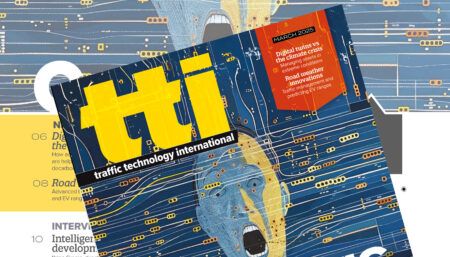In the first of two Department for Transport (DfT) projects that could change the way traffic is managed in the UK, the City of York Council (COYC) is pioneering intelligent transport technology to tackle congestion on its road network.
The city has launched its £450,000 (US$628,200) Eboracum research project along the A59 corridor, which will be the first time a UK city has used real-time data to set its traffic management tools as part of a Cooperative Intelligent Transportation System (C-ITS).
In the first phase of the project, the council has installed special sensors from the Lendal Arch gyratory system and along the A59 corridor, which will pick up anonymous mobile cell phone signals and probe data from connected cars that will be provided by Inrix.
COYC can then combine this information with other data, such as real-time bus movements, to give a complete picture of how the city’s traffic behaves. This will help the council to set traffic signal timings through its SCOOT (Split Cycle Offset Optimization Technique) adaptive traffic management software platform, which responds to live vehicle flow patterns, especially in events such as accidents or sudden rainfall.
The council will now be able to take its high-technology traffic management citywide after winning a further £2.85m (US$3.9m) from the UK government’s National Productivity Fund for its revolutionary Smarter Travel Evolution Program (STEP) project. Starting this month, the two-year life of STEP will transform the way COYC manages the city’s roads, from changes to how traffic lights react to traffic flows, through to designing junctions and road improvements.
This will also allow the council to better understand and model the potential impact of changes and demands on the network such as new homes and employment sites are created. STEP will also provide ready-made technology to communicate with the connected and autonomous vehicles (CAVs) that are predicted to revolutionize transport with this data.
The STEP project and COYC’s other transportation management schemes are aided by the wider Digital York digital infrastructure connectivity program that aims to create the UK’s first ‘Gigabit City’. COYC’s partners on the STEP project include: Inrix (traffic data), Dynniq (traffic signaling equipment), IDT (roadside communications equipment), and the IRC and White Willow consultancies.
“Our famous historic city hasn’t got the space for more road, so we have to use technology as much as tarmac to get our network fit for the whole of the 21st century,” noted Peter Dew, COYC’s executive member for transport.
“What happens on York’s roads over the next couple of years will help to define how traffic is managed in the UK. This is a genuinely pioneering approach to making our roads safer and air cleaner, made possible by York’s new digital infrastructure.”




